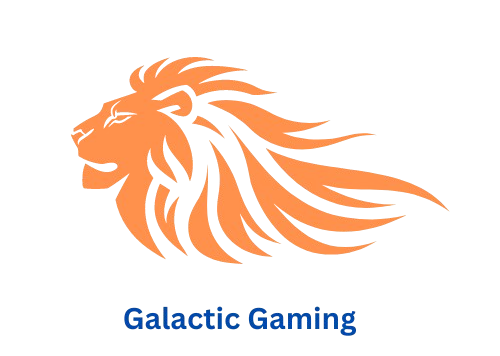Online gaming has rapidly become a global phenomenon, with millions of people of all ages participating in gaming communities and digital worlds. While gaming is often seen as a fun and engaging form of entertainment, there are growing discussions about its impact on mental health. As online gaming continues to gain popularity, it’s essential to explore both the positive and negative effects it can have on mental well-being. Understanding the balance between gaming as a recreational activity and its potential mental health implications is crucial for both gamers and the broader society.
The Positive Side: Cognitive and Emotional Benefits
One of the key benefits of online gaming is its slot online ability to enhance cognitive skills. Many games require strategic thinking, problem-solving, and multitasking, which can stimulate mental acuity. Games like Portal, Civilization, and StarCraft challenge players to think critically, plan ahead, and adapt to changing scenarios. These skills can translate into real-life benefits, such as better decision-making and improved problem-solving abilities.
Online gaming also provides a sense of accomplishment. Many games feature levels, achievements, and rewards that encourage players to keep progressing. The sense of achievement in reaching milestones or completing complex challenges can boost self-esteem and confidence. For some individuals, especially those who might struggle with other aspects of their lives, gaming provides a space where they can excel and experience success.
Furthermore, multiplayer online games, particularly massively multiplayer online role-playing games (MMORPGs) like World of Warcraft and Final Fantasy XIV, offer a unique opportunity for social connection. In these virtual spaces, players can forge friendships, build teams, and collaborate with others, often forming tight-knit communities. This social aspect can help combat feelings of isolation, particularly for individuals who have limited social interactions in their offline lives. For some players, these online friendships can be just as meaningful and supportive as those made in person.
The Negative Side: Risks to Mental Health
While online gaming has its benefits, excessive gaming or unhealthy patterns of play can lead to a range of mental health issues. One of the most concerning risks is gaming addiction, where players become overly immersed in the game world at the expense of real-life responsibilities. Like any form of addiction, excessive gaming can interfere with daily functioning, leading to issues such as neglecting work, school, or social obligations. In extreme cases, it can even lead to physical health problems, such as sleep deprivation, poor nutrition, and lack of exercise.
Gaming addiction is often linked to mental health conditions such as anxiety and depression. Some players may turn to gaming as a way to escape from the stress or emotional challenges they face in their daily lives. While gaming may provide temporary relief, it does not address the underlying causes of distress. This escape can lead to a cycle where individuals increasingly rely on gaming to cope, exacerbating their mental health struggles.
In addition, the highly competitive nature of some online games can create a pressure-filled environment that contributes to stress and anxiety. Titles like League of Legends, Overwatch, and Fortnite often feature ranked modes and leaderboards, which can fuel a desire to constantly improve and outperform others. This pressure to succeed can lead to frustration, burnout, and negative emotions, especially for players who face constant setbacks or failures in their gameplay.
Moreover, toxic behavior in gaming communities, including bullying, harassment, and cyberstalking, can have detrimental effects on mental health. Many online games have built-in communication tools that allow players to interact with each other, but not all of these interactions are positive. In some gaming communities, toxic behavior is rampant, and players may experience bullying, insults, or exclusion. This can lead to feelings of isolation, anxiety, and lowered self-worth. For some, the emotional toll of negative interactions can outweigh the enjoyment they get from playing the game.
Finding a Healthy Balance
To mitigate the potential mental health risks of online gaming, it is important for players to find a healthy balance. Setting time limits on gaming sessions can help ensure that players do not overindulge and allow them to maintain other important aspects of their lives. Establishing boundaries, such as taking regular breaks, engaging in physical activity, and maintaining social interactions offline, can prevent gaming from becoming an unhealthy obsession.
Parents, caregivers, and educators also play a crucial role in guiding young players toward healthy gaming habits. Monitoring gaming time, encouraging diverse activities, and discussing the importance of mental well-being can help children and teenagers develop a balanced approach to gaming. It’s also vital to be aware of the content and social environment of the games children are playing, as certain games or online communities may not be conducive to positive mental health.
In addition, players should be aware of the signs of gaming addiction and seek help if needed. Mental health professionals can assist in addressing the emotional or psychological issues that may be contributing to excessive gaming. Support groups for gamers, both online and in-person, can provide a safe space for individuals to discuss their struggles and learn strategies for managing their gaming habits in a healthier way.
Conclusion
The impact of online gaming on mental health is complex and multifaceted. On the one hand, gaming offers cognitive and emotional benefits, providing players with a sense of achievement, social connection, and stress relief. On the other hand, excessive gaming can lead to addiction, anxiety, and social isolation. By fostering a healthy balance and being mindful of the potential risks, players can continue to enjoy the positive aspects of online gaming while safeguarding their mental well-being. As the gaming landscape continues to evolve, understanding the mental health implications of gaming will be key to ensuring that it remains a positive and enriching activity for all players.
